Remembering Highroad's top 10 moments
A look back at four years of dominance
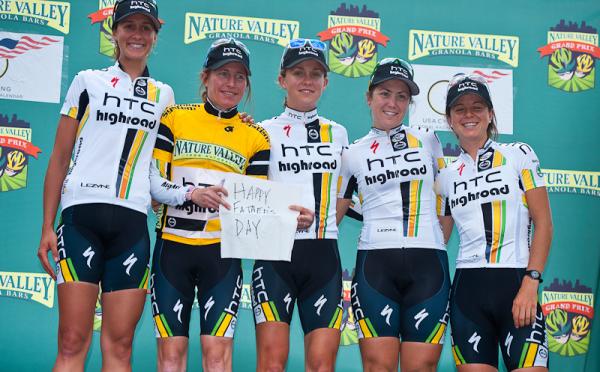
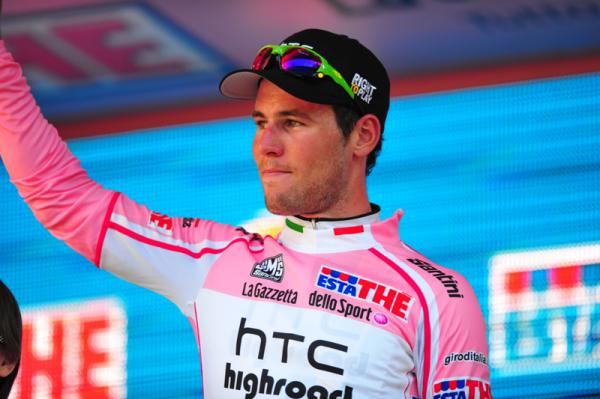
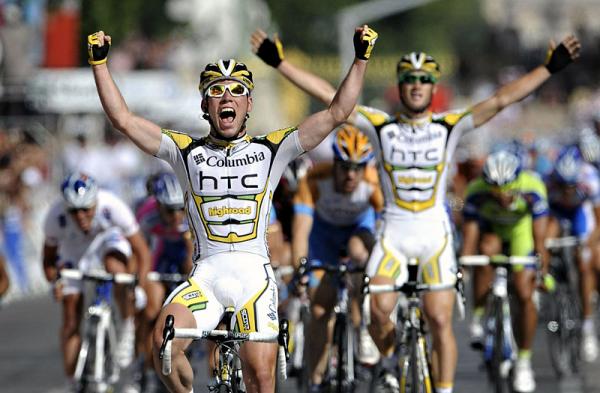
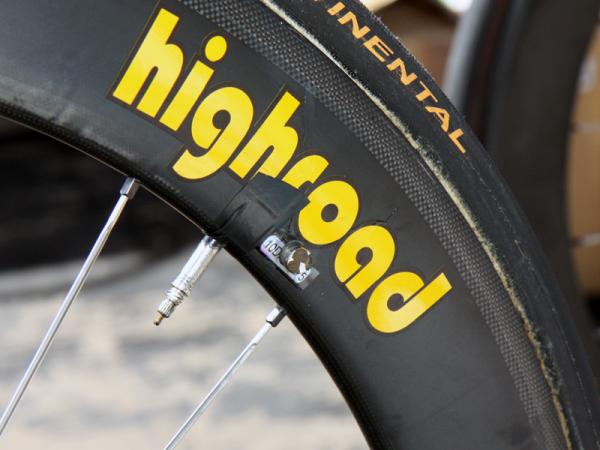
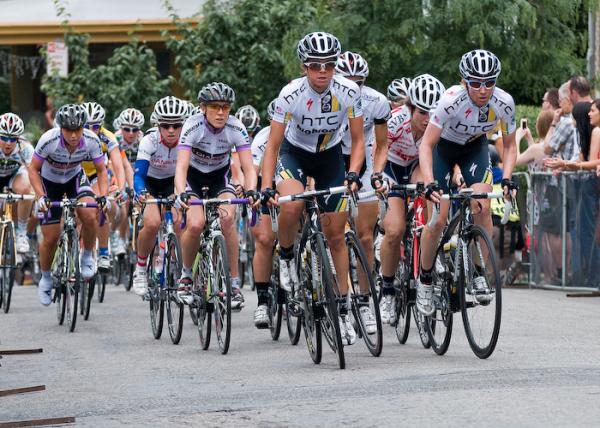
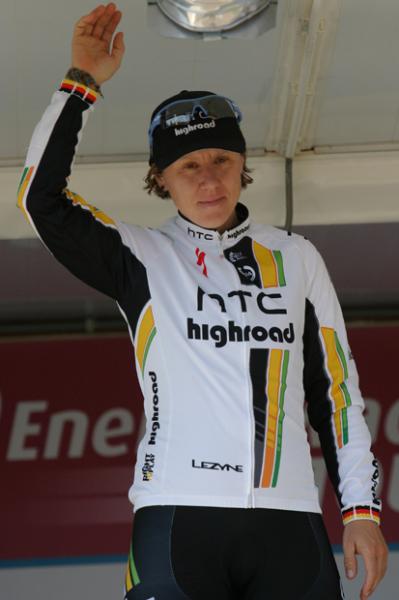
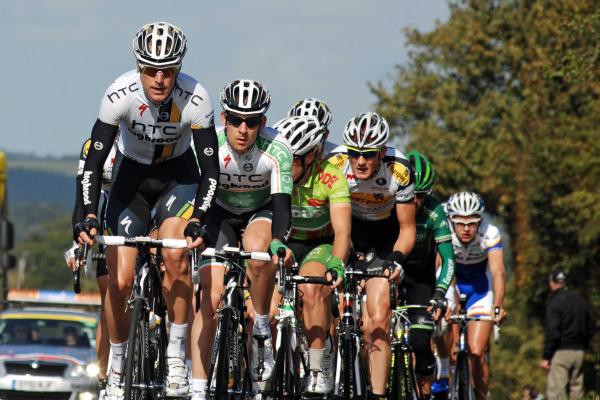
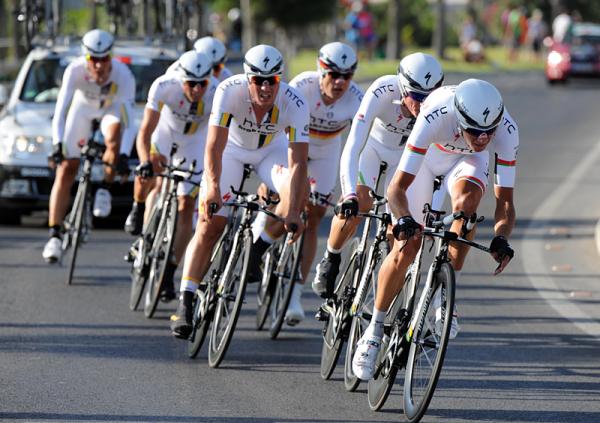
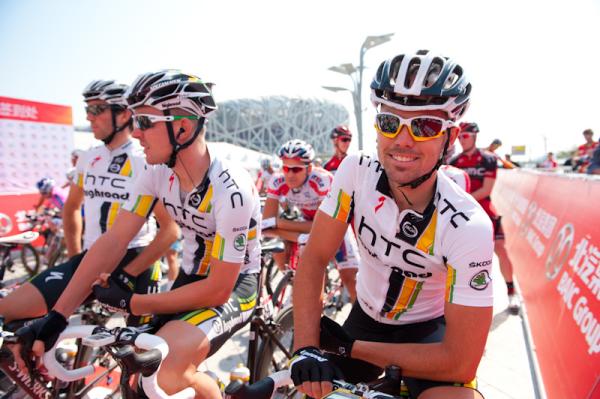
At the end of the 2011 road season, the world of cycling officially said goodbye to the most dominant team of the past four seasons - Highroad Sports and its incarnations with title sponsors Columbia and HTC.
In its first season after starting anew following the exit of T-Mobile and two years of destructive doping scandals, the team quickly rose to the top of the charts, winning a whopping 127 races between its men's and women's teams. In four years, the team has accumulated an amazing 441 victories - more than many other teams combined.
Cyclingnews spoke with general manager Bob Stapleton and directeur sportif Allan Peiper to come up with a list of the top moments. We've listed them in chronological order since, as Stapleton put it, "There's been so many. It's like trying to figure out which of your kids is the most beautiful."
Without a title sponsor, the team came into 2008 as Highroad, being bankrolled by Stapleton's management company, and with a roster full of sprinters, one-day riders and unknowns with nary a Grand Tour contender among them. Few could have predicted the team would end the season with 77 victories, four of which came in its first ProTour race, the Tour Down Under.
Andre Greipel claimed four stages and the overall classification, and touched off what Stapleton described as "this cascade of success".
"Greipel's domination at Tour Down Under kind of brought that race to life, and it was something we very much enjoyed," Stapleton said.
The latest race content, interviews, features, reviews and expert buying guides, direct to your inbox!
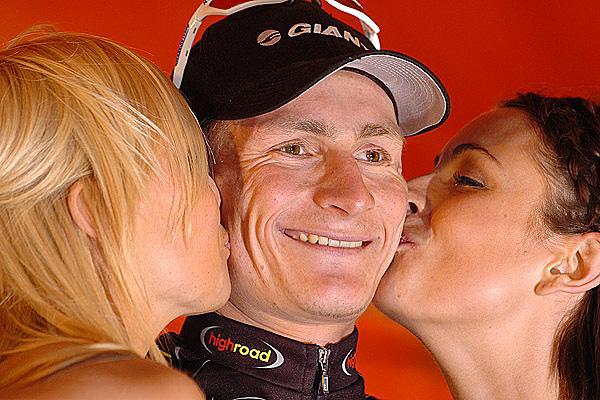
Photo: Shane Goss
2008: Spring success from surprise sources
The team continued to gather momentum with two key victories: the Tour de Georgia and La Flèche Wallonne which came within days of each other in April.
Looking back on the Tour de Georgia, Stapleton said it was expected that the race would be a Levi Leipheimer and Astana versus Garmin battle. Instead, Highroad's little known Belarussian rider Kanstantsin Sivtsov emerged as the winner. "Kosta beat them on Brasstown Bald and won it all. Nobody was watching him and he rode away with enough of a gap to win. Nobody could pronounce his name!
"Those were great, when an unexpected rider, one that nobody was watching, pulled off the win. He did that, and Kim Kirchen won Flèche Wallone in the same week - another unexpected one.
"Those races kind of put us on the map. People started to believe that they were a good team, that they could win. From April 2008 it just snowballed.
The more than 30 victories in the year's first six months earned the team its first title sponsor of its new incarnation: that of sportswear manufacturer Columbia, just before the 2008 Tour de France.
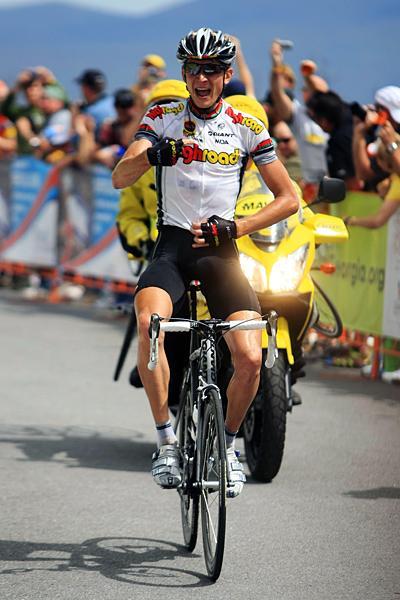
Photo: Jonathan Devich
In 2009, the team's wins continued to pour in, with Cavendish opening the season strong in Qatar and Tour of California with a pair of stage wins in each race. The early season surge was designed for one purpose: to win Milan-San Remo. Very few people believed Cavendish could last the distance at the relatively young age of 23, much less get over the climbs leading to the finish considering he hadn't shown that ability in the past.
But on March 21, 2009, Mark Cavendish proved his doubters wrong when he blasted past Heinrich Haussler in the final push to the line to ink his name up with the greats - including his sprinting mentor Erik Zabel.
"Cav's victory [in Milan-San Remo] was phenomenal," Stapleton said. "One of the most exciting finishes ever."
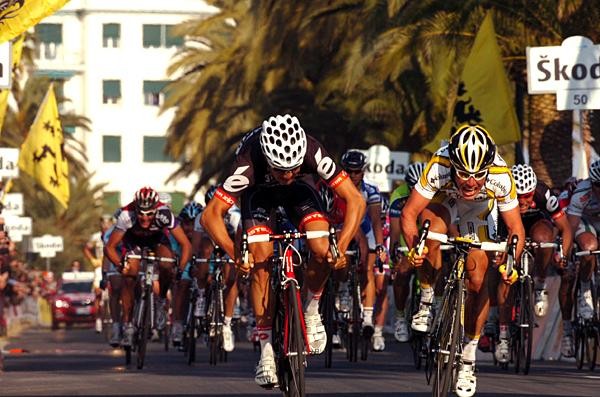
Photo: Sirotti
After taking third in the team time trial behind Garmin and CSC in 2008, Columbia was keen to get revenge on its American rivals. There was some prickliness between the two US squads in the press leading up to the Giro, but Columbia showed everyone who was boss, winning the 20.5km test by six seconds thanks to the powerful engines of Michael Rogers, Thomas Lövkvist and Marco Pinotti.
Cavendish was given the honour of crossing the line first to take the team's first Giro d'Italia leader's jersey.
Cavendish then went on to net three stages in the Giro, and in addition to stage wins by Boasson Hagen and Svitsov, Lövkvist spent time in the maglia rosa and best young rider's jersey.
"The 2009 Giro was an absolute breakout. We had outrageous success. That's where everyone in the team finally realized that we could compete at any level. That on any given day we could win. That carried us for a couple years," Stapleton said.
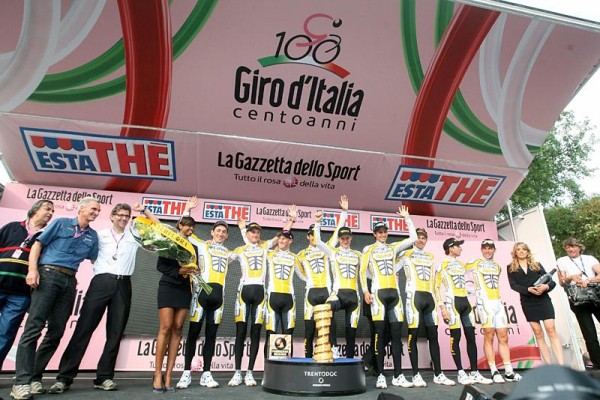
Photo: Roberto Bettini
Cavendish completed his utter domination of the sprints with a spectacular 2009 Tour de France, and while his battle with Thor Hushovd for the green points jersey was scuttled after being relegated on stage 14, his six stage victories and seven days in green more than made up for the disappointment.
One of the six wins came on the final stage, with a hair-raising lead-out by George Hincapie, who brought Mark Renshaw and Cavendish over the Garmin train in the final bend and shut the door - allowing Cavendish and Renshaw to run away with the coveted win on the Champs-Élysées.
"The Tour that year, 2009, was outstanding. The last stage on the Champs-Élysées, where Hincapie with a broken collarbone shut down Garmin trying to go to the front in the corner, and Renshaw and Cavendish winning by a country mile? That was exciting," said Stapleton.
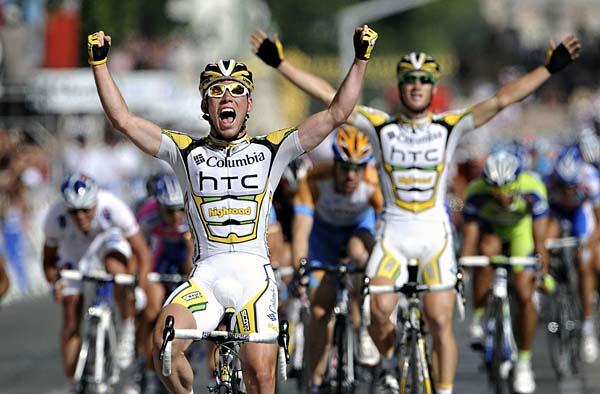
Photo: Roberto Bettini
2010 Tour of California
The 2010 Tour of California was perhaps the most exciting edition of the race, and it was thanks to the Highroad team's fierce battle against RadioShack and Garmin. Michael Rogers took the lead from Garmin's David Zabriskie on stage 5 to Bakersfield with a gutsy sprint, and further extended his slim lead with second in the time trial behind teammate Tony Martin.
Heading into the final stage with only nine seconds over Zabriskie and a hilly circuit in Thousand Oaks, Rogers had to dig deep to cover multiple attacks on the last lap from Radioshack and Garmin, including a breakaway from Chris Horner that threatened both himself and Zabriskie.
"Rogers in the 2010 Tour of California - that was kind of a big deal," Stapleton said. "That was one of the best races of his career, and they won it in a good team fashion, everyone gave everything to make that happen. He barely hung on - it really came down to the last lap on the last stage."
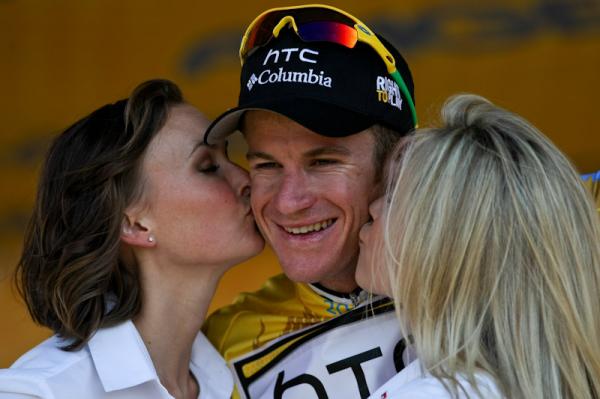
Photo: Jonathan Devich
The team's winning start began to butt up against its strong personalities in 2010, with star Mark Cavendish the centre of several controversies during the season. First, off-season dental surgery caused the sprint sensation to come into the season with less than stellar form, and his late start scuttled his chance at a second Milan-San Remo victory.
His poor placing led Greipel to suggest he could have done better, to which Cavendish replied by publicly belittle the German's possibility of winning a Monument, further inflaming the intra-squad rivalry.
While Cavendish got back to his winning ways in the Volta a Catalunya, he didn't forget the stinging criticism that came during his poor start. His anger erupted during the Tour de Romandie, when he won stage 2 but saluted with a rude gesture aimed at his critics and was yanked from the race by his team.
He went on to complain about the team having him skip the Giro d'Italia in favor of the Tour of California, and then a nasty crash with Heinrich Haussler in the Tour de Suisse piled more controversy on the Manxman
For these reasons, Cavendish's first stage win of the 2010 Tour de France was listed by Stapleton and Peiper as one of the team's top moments.
"Personally, Cav’s first win at the 2010 Tour was the most pleasing for me," said Peiper. "There were so many ups and downs at the start of the year and so much stress involved in the team. There were six or seven stages of him not winning in that race, too, and then to see the pictures of him on the podium crying, that just said it all.
"As a team we bonded so well because people questioned why we kept so much faith in him, but that just said it all about HTC and that we supported him and stood behind him. That was a pretty amazing moment for everybody."
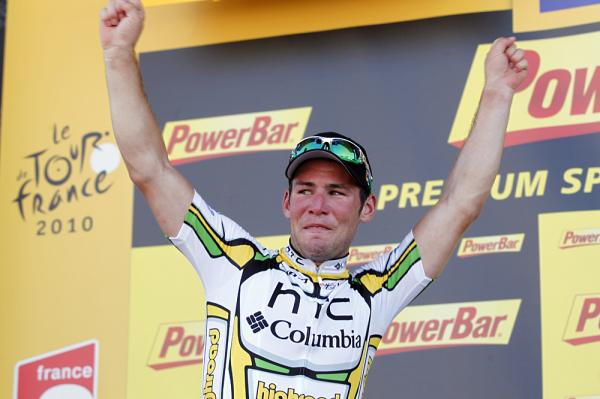
Photo: Roberto Bettini
When a crash split the peloton with 90km to go in the marathon of the Monuments, and most of the top sprinters were left chasing to close a gap that just wouldn't go away, HTC-Highroad had one man in the front group: Matthew Goss.
Goss wasn't exactly an unknown quantity in the sprints, having won stages of Paris-Nice, Tour of Oman and Tour Down Under earlier in the year, and having a handful of Classic or Semi-Classic podiums in his palmares.
Yet Gossy's name didn't come up on many of the pundits' lists for the win, mainly due to the presence of Cavendish on the start list. The split that wouldn't close upped his chances, but he still faced Heinrich Haussler, Philippe Gilbert, Fabian Cancellara and Alessandro Petacchi up front.
But when the final selection was made over the Poggio with less than 10km to go, there was nobody in the group quicker in a sprint than the 24-year-old Aussie.
"Goss, the only survivor from the team, the only guy on the team that makes the front group and he manages to win? That's a lot of fun," Stapleton said with a laugh.
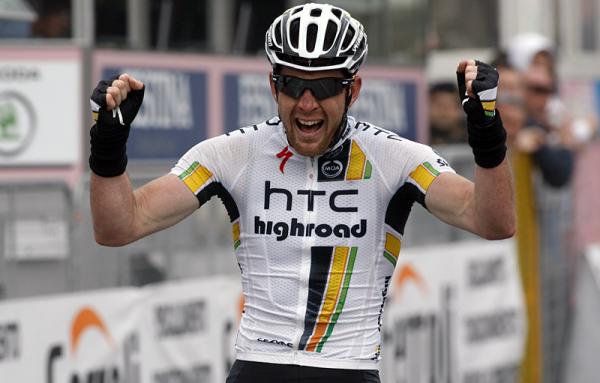
The UCI Road World Championships are raced with national teams, but the HTC-Highroad riders showed the team's class and character with three commanding victories: that of Cavendish in the men's road race, Tony Martin in the time trial, and Judith Arndt in the women's time trial.
"Clearly winning three world championships this year was pretty remarkable. We had a real shot at a sweep and Ina [Teutenberg] was so disappointed that she only won bronze," Stapleton laughed.
"Cavendish winning the Worlds was a crowning glory and then seeing Tony do it in the time trial made the Worlds even better," said Peiper. "Having two winners in the same year was amazing and that's something a lot of teams could never imagine doing."
The individual performances showed that the winning attitudes coming out of the Highroad program will not be diluted when the team disbands.
Stapleton gave his team directors credit for developing the riders into winners, saying the team's success demonstrates their quality. "[We had] five managers of that team who could run a ProTour level team themselves. That was the fundamental goal. We'd have the athletes and the leadership that would move the sport forward.
"I'm not really sad and upset about the team not continuing, because it really does so with the arms and legs and brains of the people that were here.
"I wasn't going to run a team for 20 years. Eveyrbody benefitted from being here. It was like when we sold the telecom company many yeras ago. Everyone who worked there benefitted from being there. Everyone went off and made a lot more money and had better careers, and carried forward what they did here. That's why these managers are so highly sought after. They're going to improve the teams they go to."
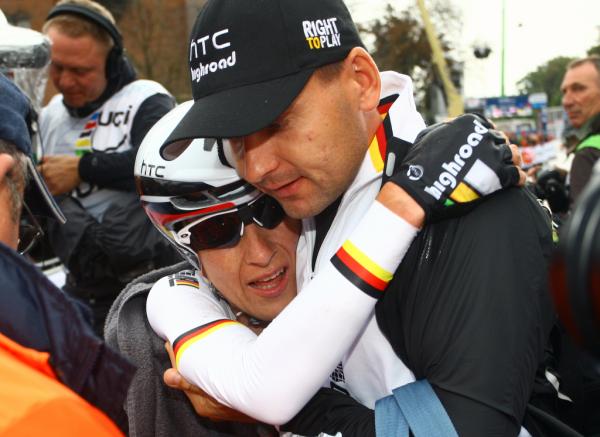
Photo: Riccardo Scanferla
Highroad Women
While the men's squad disperses throughout the peloton, the women of HTC-Highroad will be kept largely together under the management of Kristy Scrymgeour and director Ronnie Lauke as Specialized-Lululemon. It's a step back in time to when the women existed as an independent entity as T-Mobile, where Stapleton got his start in the sport, and although he will no longer be owner of the squad he's still proud of what the team has achieved and will continue to achieve.
"We had two years when every single athlete won a race, that's special. That almost never happens, and we did it twice," Stapleton said.
From Judith Arndt's three World Cup wins and the overall World Cup in the first year as Columbia in 2008 to her world title in 2011 and every year in between, the women of Highroad set the standard for the sport.
Highlights include Ina Teutenberg's utter domination of the Giro Donne in 2010, where she won four stages in a row - a feat which improved upon a three-stage run in 2008; three wins in the Redlands Bicycle Classic; four Liberty Classic wins (three by Teutenberg and one by Chantal Beltman); Tour of Flanders wins by Arndt and Teutenberg; and a gutsy stage win by Evelyn Stevens in the final stage at Redlands 2010.
"Evelyn did that [win] by herself and I think it was the first time she used her instincts and it worked," Teutenberg said at the time. "She did an amazing job. She rode the last 30km off the front for me. The last three laps, I couldn't hold on to the attacks and she pretty much single handedly road me back every time. She deserved that victory."
"I think as an overall you can say that this year they won over 50% of the races they competed in," Scrymgeour said, also naming the Open de Suède Vargarda team time trial as a major victory for the team after three years of taking second.
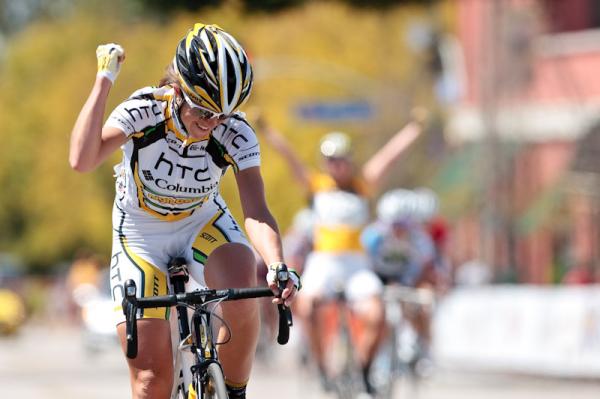

Laura Weislo has been with Cyclingnews since 2006 after making a switch from a career in science. As Managing Editor, she coordinates coverage for North American events and global news. As former elite-level road racer who dabbled in cyclo-cross and track, Laura has a passion for all three disciplines. When not working she likes to go camping and explore lesser traveled roads, paths and gravel tracks. Laura specialises in covering doping, anti-doping, UCI governance and performing data analysis.